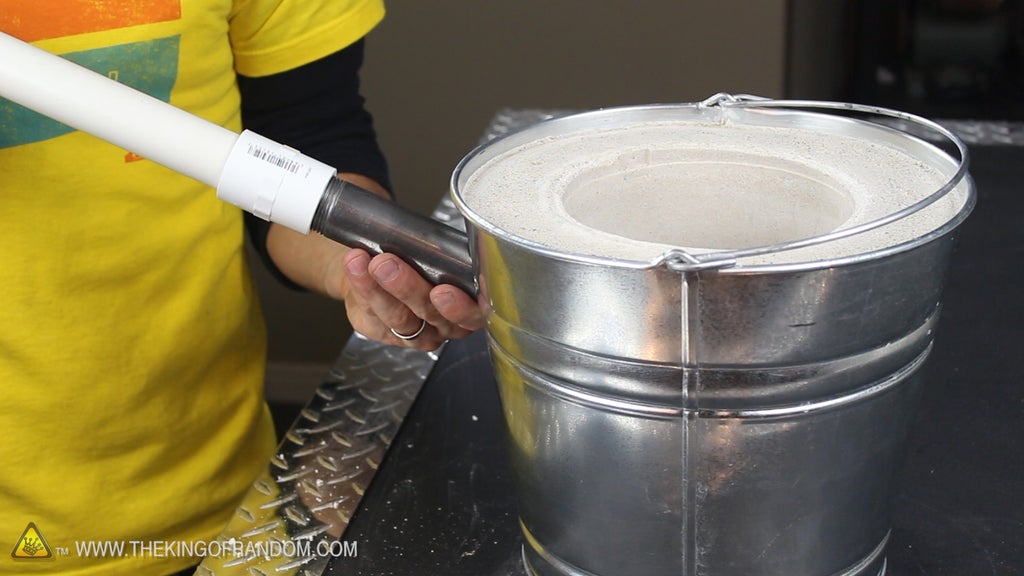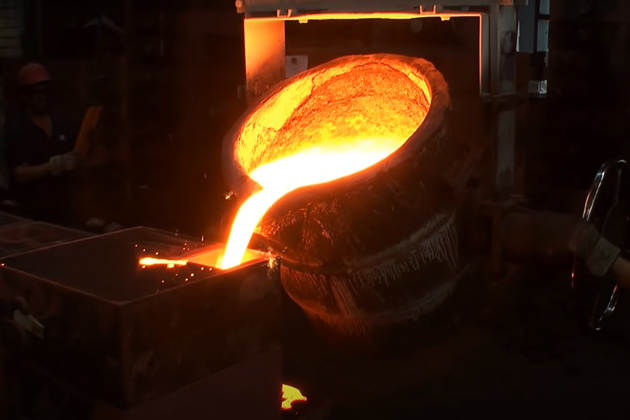New technologies in Metal Casting every engineer should know about
Wiki Article
Exploring the Function of a Metal Foundry in Modern Manufacturing Processes
Metal foundries are critical in the landscape of modern manufacturing. They give critical parts throughout numerous markets, adapting to the demands of industries such as auto and aerospace. Advanced methods such as 3D printing and automated casting have transformed their procedures. Furthermore, sustainability has become a top priority, influencing their techniques. As these foundries develop, the effects for manufacturing performance and development are substantial, raising concerns concerning their future trajectory in an ever-changing economic situation.The Evolution of Metal Casting Methods

With the increase of mass manufacturing, foundries took on methods like die casting and lost foam casting, enhancing the production procedure and reducing waste. Each development in metal casting methods has actually satisfied the needs of different markets, from auto to aerospace. As metal casting remains to advancement, the interplay between method and modern technology continues to be crucial in meeting modern-day production obstacles, guaranteeing that foundries adapt and thrive in an ever-changing landscape.
Combination of Advanced Technologies in Foundries
Conventional metal casting techniques have offered the industry well for centuries, the integration of innovative technologies in foundries is revolutionizing the manufacturing landscape. Automation and robotics streamline production procedures, enhancing efficiency and reducing the danger of human error. Technologies such as 3D printing enable quick prototyping and the development of complicated geometries that were once impossible with traditional approaches. Additionally, information analytics and the Web of Points (IoT) allow real-time monitoring and anticipating upkeep, inevitably leading to minimized downtime and enhanced efficiency. These developments also promote customization, enabling makers to respond promptly to market demands. As sustainability ends up being a top priority, the fostering of eco-friendly innovations, such as electrical melting heaters and progressed sand recovery systems, further demonstrates the market's commitment to advancement. Collectively, these innovations not just enhance operational performance however likewise placement foundries at the center of modern-day production techniques.The Influence of Product Scientific Research on Foundry Procedures
Product scientific research plays a crucial role in enhancing foundry procedures, affecting both the selection of materials and the general casting procedure. Developments in product science offer a much deeper understanding of the residential properties of metals and alloys, allowing foundries to choose one of the most suitable materials for certain applications. This expertise enhances the performance and toughness of actors products, which is important for satisfying sector criteria.Technologies in material solutions and ingredients contribute to boosted casting methods, optimizing and minimizing problems manufacturing effectiveness. The development of sophisticated metal composites and wise materials enables foundries to produce lighter, stronger parts, which are progressively looked for after in various sectors such as automobile and aerospace.
Additionally, product scientific research aids in the recycling of metals, making processes extra reliable and economical. By leveraging the most up to date searchings for in product science, foundries can adapt to advancing market Metal Foundry needs, ensuring their competitiveness in a swiftly altering manufacturing landscape.
Sustainability Practices in Modern Metal Foundries
With the growing focus on environmental responsibility, modern-day metal foundries are progressively applying sustainability methods to decrease their ecological footprint (Aluminum Foundry). One essential technique entails the recycling of scrap metal, which not only decreases waste however additionally conserves energy and raw materials. Foundries are embracing sophisticated melting modern technologies that enhance energy effectiveness, as a result lowering greenhouse gas emissions. Furthermore, the usage of eco pleasant coverings and materials has gotten grip, more lowering harmful discharges throughout manufacturingWater conservation methods, such as closed-loop air conditioning systems, are being carried out to decrease freshwater use. Lots of foundries are also spending in renewable resource resources, like solar and wind, to power their procedures, thus lowering reliance on fossil fuels. In addition, staff training programs focused on sustainability methods advertise a culture of environmental understanding within the labor force. These initiatives jointly add to an extra sustainable future for metal foundries while meeting the demands of eco-conscious consumers.
The Future of Foundries in an Altering Financial Landscape
As the international economy develops, foundries deal with a myriad of difficulties and chances that will certainly form their future (Aluminum Foundry). The enhancing need for lightweight products and progressed alloys necessitates technology in manufacturing strategies and technical combination. Automation and wise production practices are coming to be essential for boosting performance and decreasing functional expenses. Additionally, the increase of sustainability issues urges foundries to take on greener processes and recycling initiatives, straightening with worldwide environmental objectivesThe economic landscape is likewise changing, with supply chain interruptions and rising and fall resources costs providing substantial obstacles. Foundries must adapt by expanding their supply sources and spending in products scientific research. Additionally, cooperation with markets such as renewable power and electrical vehicles can foster development. Eventually, the future of foundries will depend on their capacity to leverage technological improvements while continuing to be responsive to market characteristics and ecological imperatives, guaranteeing their significance in contemporary production.
Often Asked Concerns
What Kinds of Metals Are Frequently Made Use Of in Foundries Today?
Commonly used steels in foundries today include light weight aluminum, iron, steel, zinc, and copper. These products are favored for their diverse residential or commercial properties, making it possible for a broad array of applications in markets such as auto, aerospace, and building.Just how Does a Shop Guarantee Quality Assurance in Its Products?

What Precaution Are Implemented in a Metal Foundry?
Metal foundries carry out precaution consisting of personal safety equipment, ventilation systems to reduce inhalation of fumes, regular safety training for employees, emergency situation feedback methods, and strenuous devices maintenance to reduce risks and guarantee a safe workplace.For how long Does the Metal Casting Refine Normally Take?
The metal casting procedure usually takes a number of hours to days, depending on factors such as the intricacy of the mold and mildew, the kind of metal used, and cooling down times. Each job's demands significantly influence the period.What Industries Mostly Rely on Metal Foundries for Manufacturing?
Automotive, aerospace, building, and machinery industries primarily rely upon metal foundries for manufacturing. These fields make use of cast metals for parts, guaranteeing durability and efficiency crucial for their corresponding applications in manufacturing and assembly procedures.
Metal foundries are essential in the landscape of contemporary manufacturing. Metal Foundry. Traditional metal casting approaches have served the sector well for centuries, the combination of advanced modern technologies in foundries is reinventing the production landscape. Breakthroughs in product scientific research give a much deeper understanding of the buildings of alloys and steels, enabling foundries to select the most suitable materials for particular applications. With the growing focus on ecological obligation, modern-day metal foundries are significantly applying sustainability techniques to lessen their ecological impact. Automotive, equipment, aerospace, and building and construction sectors largely count on metal foundries for manufacturing
Report this wiki page